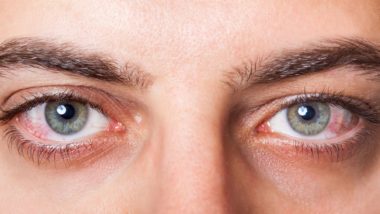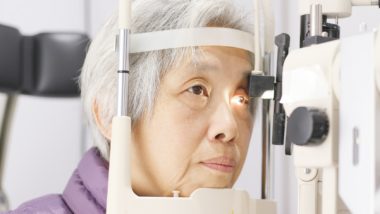
A number of recent studies about the potentially damaging side effects of the drug Elmiron have been in the news in the last year, which has prompted some people to wonder what is Elmiron used for.
In the U.S., an estimated one million people, most of them women, suffer from a painful condition called interstitial cystitis. This condition causes chronic, relentless pain in the lower abdomen and pelvis.
For some, the condition comes and goes; for others, it’s constant. Interstitial cystitis can create the sensation of having a full bladder, or a bladder infection, even when neither is the case. It can cause pain during sex, and during urination. There is no cure.
Elmiron, the name brand of the generic drug pentosan polysulfate, is the only FDA-approved medication available to treat interstitial cystitis. It has been in use for decades, since its approval back in 1996. Elmiron was originally developed by Teva Pharmaceuticals, which was then licensed to Janssen Pharmaceuticals (parent company of Johnson & Johnson). Janssen is now both the manufacturer and distributor of Elmiron.
How Does Elmiron Work?
Although there are other treatments for the symptoms of interstitial cystitis – namely pain relievers and antihistamines to control inflammation – Elmiron acts on the bladder alone, according to MedlinePlus. But how exactly does Elmiron work?
Elmiron is believed to work by coating the inner lining of the bladder, forming a protective layer that reduces the irritation that can be caused by particles in urine. By reducing the irritation, it helps reduce the discomfort and pain. However, because the cause of interstitial cystitis is still unknown, this is a questionable solution.
Elmiron Uses
For many patients diagnosed with interstitial cystitis, Elmiron is a first-line approach, meaning it is commonly prescribed early in the treatment process. Clinical trials have shown Elmiron to be between 38% and 64% effective at improving the symptoms of patients treated with it, depending on the type of study conducted.
It can take three to six months for an Elmiron patient to experience the drug’s full benefit, according to Harvard Medical School. The most common side effects, which are listed as rare, include reversible hair loss, diarrhea, nausea, and rash.
In addition to treating interstitial cystitis, research has also been conducted on pentosan polysulfate to determine whether it may also be prescribed to treat off label conditions. What is Elmiron used for besides interstitial cystitis? Some research has been conducted on the effect of Elmiron on osteoarthritis, although the drug may not be as effective at managing the condition as other methods.
Elmiron and Maculopathy

Despite its benefits, reports issued in the last year suggest Elmiron might cause maculopathy, or degenerative damage to the retina, in people who use it.
Maculopathy affects the macula, which is the central portion of the retina. The macula controls certain essential functions of the eye, including central vision, the majority of color vision, and fine detail.
Macular degeneration is something that develops over time, and its symptoms gradually worsen. Having regular eye examinations with an ophthalmologist is the best way to detect and diagnose macular degeneration early on. There are two types of macular degeneration, dry (most common) and wet. Symptoms to look out for include:
- Blurred central vision
- Difficulty reading
- Blurred, dark, or empty spots
- Distortion, where objectively straight lines appear bent or wavy
Other symptoms may include hallucinations of flashing lights or bright colors. Many patients also report difficulty seeing in dim light, difficulty adjusting to changes in light, or difficulty recognizing faces.
Although people who develop maculopathy are unlikely to go entirely blind, they may lose all of their central vision. This can cause people to experience large holes in their vision, where they can see details around whatever they are trying to look at, rather than the thing itself.
Unfortunately, maculopathy is not reversible, and once the eye damage has been done, it is unlikely that the patient will regain their vision. However, patients may take steps to avoid future vision loss, such as ceasing to take Elmiron, taking vitamin supplements, and not smoking.
A 2018 study by Nieraj Jain, M.D, assistant professor of ophthalmology at the Emory University School of Medicine, Emory Eye Center in Atlanta found six patients who had been taking Elmiron for an average of 15 years experienced reading difficulty and visual changes. Under examination, those patients were found to have atypical changes in their macula, which is the central part of the retina that allows for clear central vision, according to Forbes.
Months later, the same research team found another 10 patients, all having taken Elmiron, with similar retinal changes.
U.S. News & World Report reported in October that the Emory investigation prompted researchers at Kaiser Permanente’s Northern California health care system to do some digging. Three ophthalmologists there examined 91 patients who had been taking Elmiron for an average of about 15 years. Of those, 22 “showed clear signs of Elmiron toxicity,” the article reported.
“About one-quarter of patients who’d taken large amounts of Elmiron had clear signs of eye damage, and that damage caused by the drug could be mistaken for other retinal conditions, such as age-related macular degeneration or pattern dystrophy.”
Exactly how Elmiron affects the retina is unknown. Jain’s research team said it’s possible the drug disrupts the “interphotoreceptor matrix” in the macula. Other research from the Cleveland Clinic suggests Elmiron acts as an antagonist to “a protein integral to retinal maintenance and function,” the Forbes report said.
It is unknown whether patients taking Elmiron and experiencing maculopathy can reverse the damage by stopping the medication. Researchers say long-term monitoring will be necessary to make that determination. The researchers also recommend close monitoring of retinal health for anyone taking Elmiron for an extended period of time.
The FDA has been made aware of the research done by Jain and the team at Emory, Forbes reported. So far, the FDA has taken no action on Elmiron or issued any alerts about the drug.
For patients who take Elmiron to control their interstitial cystitis, choosing between the potential side effects of the drug and the side effects of their condition may be difficult.
According to one woman who took Elmiron for fifteen years in order to treat the severe pain she experienced as a side effect of interstitial cystitis, the drug greatly helped to manage her condition. Prior to taking Elmiron, she claims that she suffered from abdominal pain serious enough to send her to the emergency room. However, after she had taken the drug for several years, she began to notice that it was becoming difficult to drive in dim light, and she was having trouble reading words on the television. She was forced to stop taking the interstitial cystitis drug, stating, “My biggest fear is going blind.”
Should You File an Elmiron Lawsuit?
Patients who have taken prescription medications like Elmiron and suffered damaging effects to their health may be candidates to pursue legal action. Participating in a lawsuit against a drug manufacturer that has caused an injury can result in damages being awarded to help cover medical and other costs.
Some plaintiffs have alleged that Elmiron was meant for long-term use, yet long-term use of the drug is what leads to a higher probability of these kinds of major side effects, especially given the retina’s limited regenerative abilities.
If you or someone you love has suffered from Elmiron side effects like vision loss or macular degeneration, you may be able to file a lawsuit and pursue compensation. Of course, filing a lawsuit cannot take away the pain and suffering caused by such vision problems, but it can at least help to alleviate the financial burden incurred by medical expenses, lost wages, and more.
Filing a lawsuit can be a daunting prospect, especially while dealing with medical issues, so Top Class Actions has laid the groundwork for you by connecting you with an experienced attorney. Consulting a qualified attorney is a good first step in determining if you have a valid claim.
Join an Elmiron Side Effects Lawsuit Investigation
If you took Elmiron and developed pigmentary maculopathy, you may qualify to participate in an Elmiron side effects lawsuit investigation.
Fill out the form on this page for a FREE case evaluation.
ATTORNEY ADVERTISING
Top Class Actions is a Proud Member of the American Bar Association
LEGAL INFORMATION IS NOT LEGAL ADVICE
Top Class Actions Legal Statement
©2008 – 2026 Top Class Actions® LLC
Various Trademarks held by their respective owners
This website is not intended for viewing or usage by European Union citizens.
Get Help – It’s Free
Join a Free Elmiron Lawsuit Investigation
If you qualify, an attorney will contact you to discuss the details of your potential case at no charge to you.
PLEASE NOTE: If you want to participate in this investigation, it is imperative that you reply to the law firm if they call or email you. Failing to do so may result in you not getting signed up as a client or getting you dropped as a client.
E-mail any problems with this form to:
[email protected].
Oops! We could not locate your form.












